No matter where you’re from or where you live, there are definitely some dishes that you associate with the feeling of home. Whether it’s a roast that your grandmother made every Christmas or the cake that your father baked for all of your childhood birthdays, food can be so deeply tied to memories. And even if you move to a new country, eating the cuisine of your homeland can be the best medicine in aiding homesickness.
So when one man told his girlfriend that he wanted their apartment to be an Indian food-free zone, it’s no surprise that she didn’t take that well. Below, you’ll find the full story that he posted on Reddit, as well as some of the replies heated readers shared.
After moving in together, this man realized that him and his girlfriend have different culinary preferences
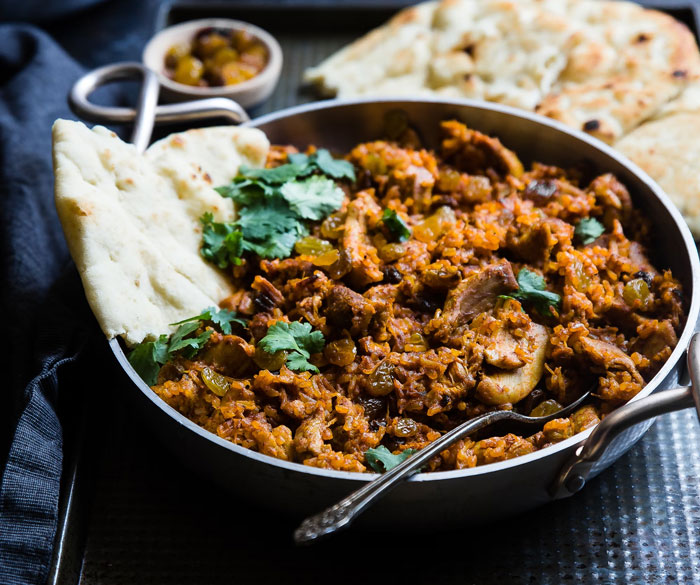
Image credits: Taylor Kiser / unsplash (not the actual photo)
But instead of accepting their differences, he requested that she never cook Indian food at home



Image credits: tan4ikk / envato (not the actual photo)

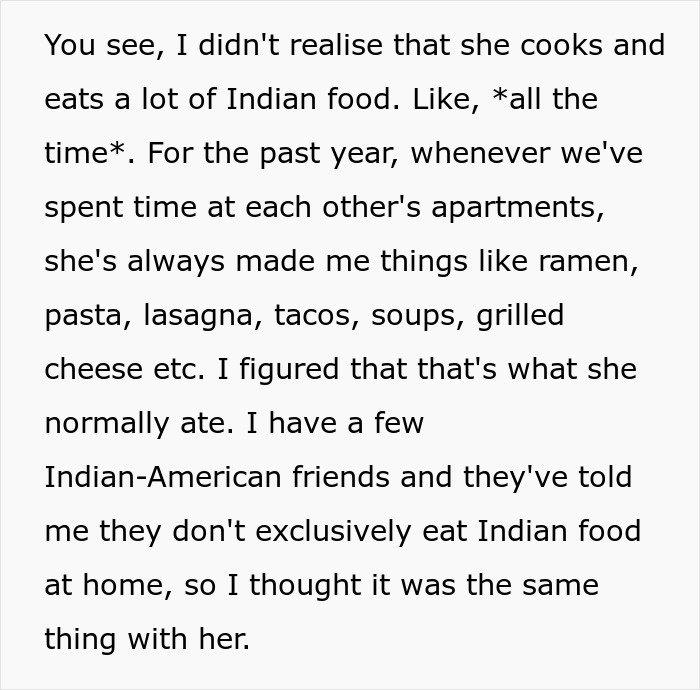
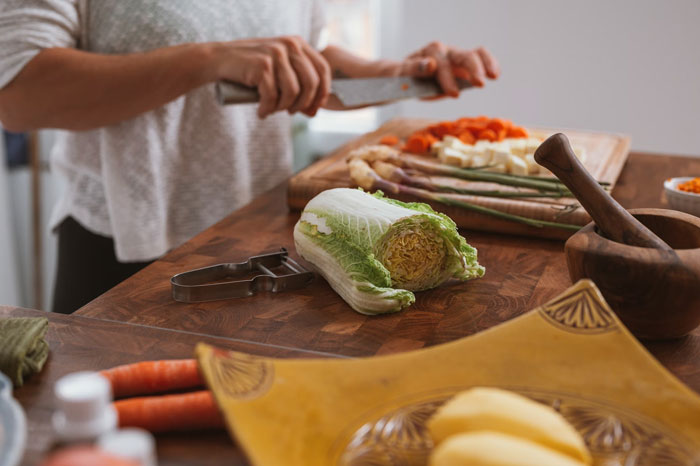
Image credits: Conscious Design / unsplash (not the actual photo)


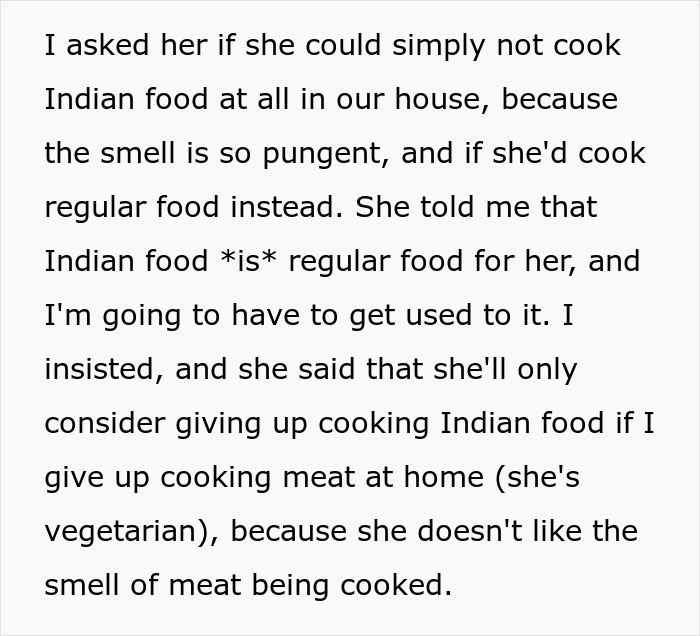


Image credits: Andrew Neel / pexels (not the actual photo)

Image credits: throwaway_80081ES
Food is deeply tied to our cultures
Food is so much more than a necessity. Sure, we all have to eat it multiple times a day to sustain ourselves, but it can offer us plenty of benefits aside from simply staying alive. Sharing a meal with friends or loved ones can help us bond and strengthen relationships, and certain foods are used to celebrate special occasions and holidays. Green bean casserole and pumpkin pie probably wouldn’t be so special if I ate them every day, but because I only make them on holidays, they fill me with warm, delicious memories (as well as food)!
According to Wathi, “food is often used as a means of retaining their cultural identity.” Each culture has their own unique cuisine that has been passed down from generations, using the food that was available to them in their native land. When we continue to create those recipes today, we’re not only cooking, but acknowledging and appreciating the people who came before us who shaped this cuisine.
And asking someone to completely avoid their culture’s cuisine, especially in their own home, is asking them to eliminate a part of their identity. On the other hand, if this man had asked his girlfriend to introduce him to Indian cuisine and had asked the cultural significance of various dishes and ingredients, he could have understood his partner on a much deeper level.
Indian food is a vast and diverse cuisine

Image credits: Pushpak Dsilva / unsplash (not the actual photo)
Indian cuisine in particular is a vast and diverse landscape of food. Because the nation itself is so large and diverse, each region has their own culinary traditions. The Association for Asian Studies also notes that “food in India is an identity marker of caste, class, family, kinship, tribe affiliation, lineage, religiosity, ethnicity, and increasingly, of secular group identification.”
The typical Indian meal is described as having a main starch, which might be rice, sorghum or wheat, vegetable or meat curry, cured and dried vegetable dishes in sauces, and thick lentil soups. When it comes to condiments, the Association for Asian Studies says masalas, plain yogurt, and vegetable raitas are popular, as well as salted pickles, fresh herbal and cooked chutneys, papadums, and sometimes dessert.
Each component of the meal can also hold more significance than simply being delicious. For example, rice has been seen as a “powerful symbol of both hunger and want as well as fulfillment and fertility,” the AAS notes. In fact, until the late 1800’s, only the wealthy had access to rice, while lower classes ate millet and sorghum. Because rice has been seen as a symbol of fertility, it has been used as a part of the marriage rites in many castes.
Looking down on another culture’s cuisine is rooted in prejudice not preference
Although we’re all allowed to have our own preferences when it comes to food, it’s surprising that this man is so against Indian food, considering that it’s one of the most popular cuisines in the world. According to TimeOut, Indian food is the 5th most popular cuisine in the world at the moment.
And as many of the commenters on this post pointed out, this man’s belief that he doesn’t like Indian food at all might be rooted in a bit of racism. The BBC addressed this same topic when a tweet went viral a few years ago after a white professor claimed that “Indian food is terrible.” In response, first generation American Saira Rao said, “Having white people trash Indian food is extremely triggering as an Indian who has been told that I smell weird, that my food smells weird and that Indians [expletive] on the street which is why everything we are smells bad.”
Anita Mannur also detailed for NBC News that she faced racism as an Indian child growing up in Australia, often being called expletives combine with “curry.” Instead of labeling all foreign foods as weird, or in this case “not regular,” Mannur urges us to discuss food in a way that doesn’t exoticize it or reduce complex, hugely varied cuisines to reductive incorrect stereotypes.
“Terms like ‘curry’ are fraught because they carry the weight of colonial history, and that history informs what the average white person thinks when they hear the term ‘Indian food.’ Curry became a quick way for the British to describe so much of the food of India with little respect for regional difference or nuance,” Mannur explained. “So when people dismiss Indian food as ‘insane’ or ‘weird,’ it is not without historical precedent.”
Readers were quick to call the man out for how childish his behavior was


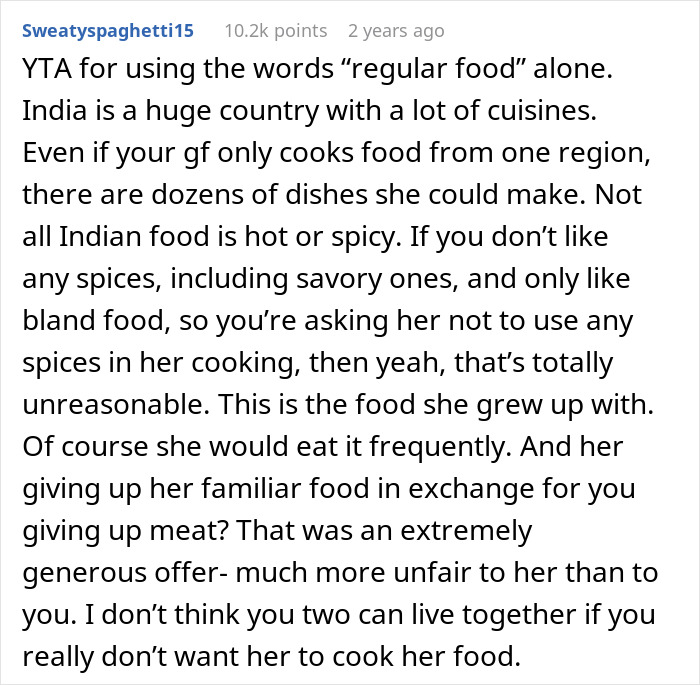

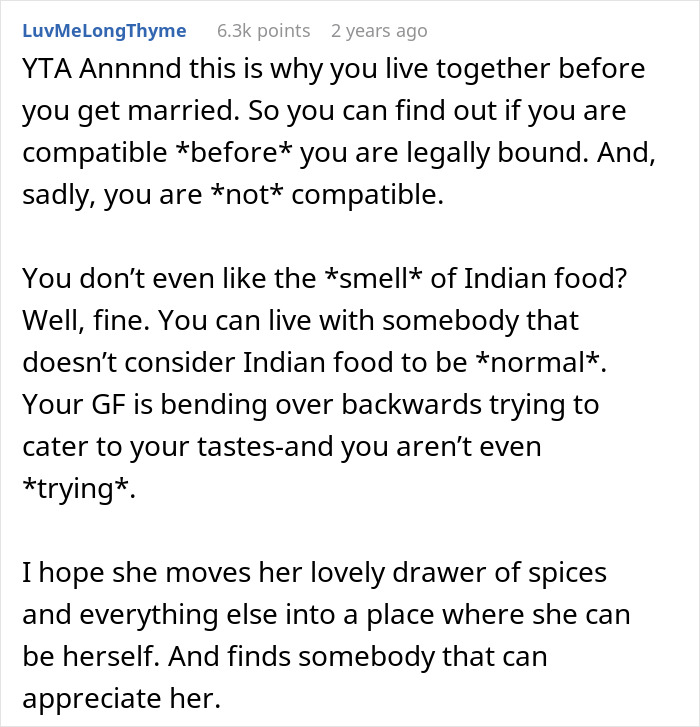
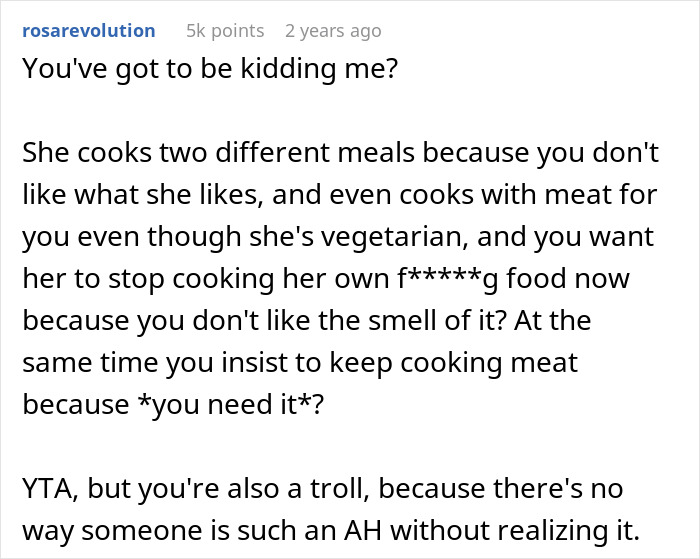




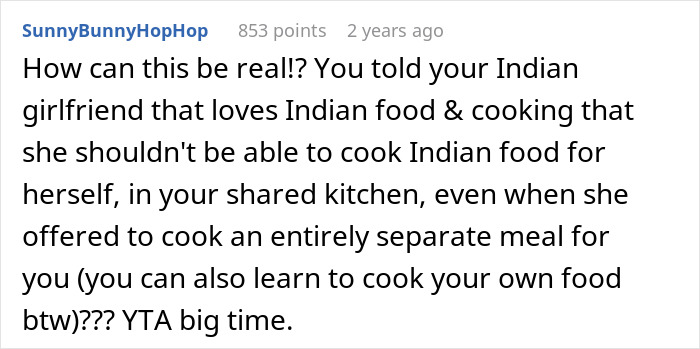








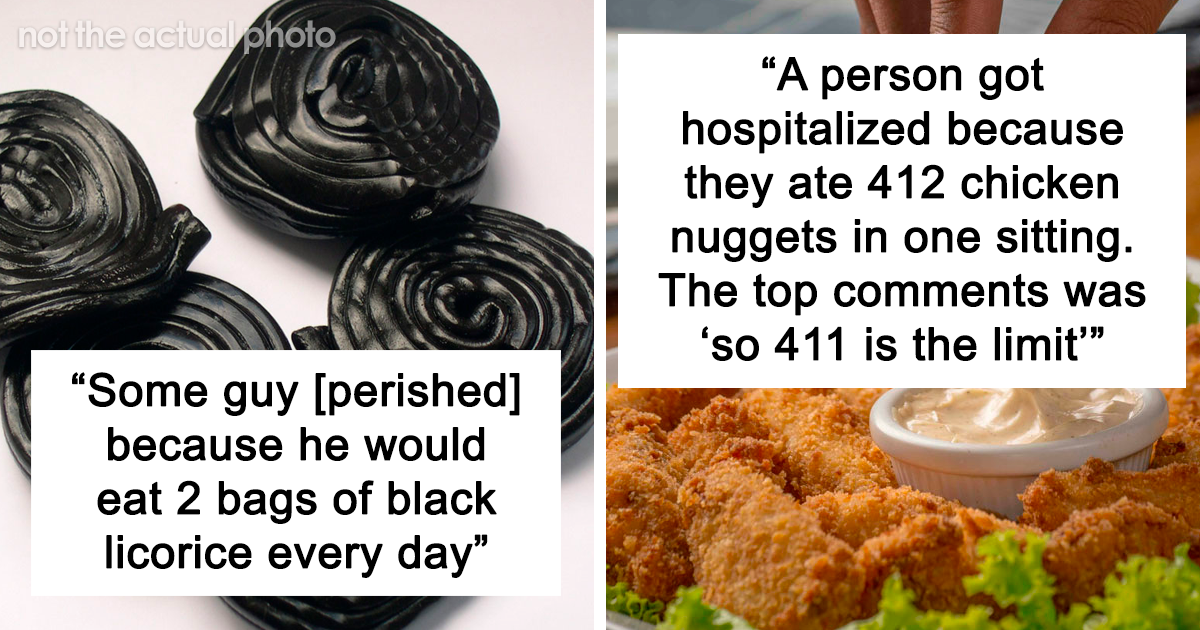





 English (US) ·
English (US) ·